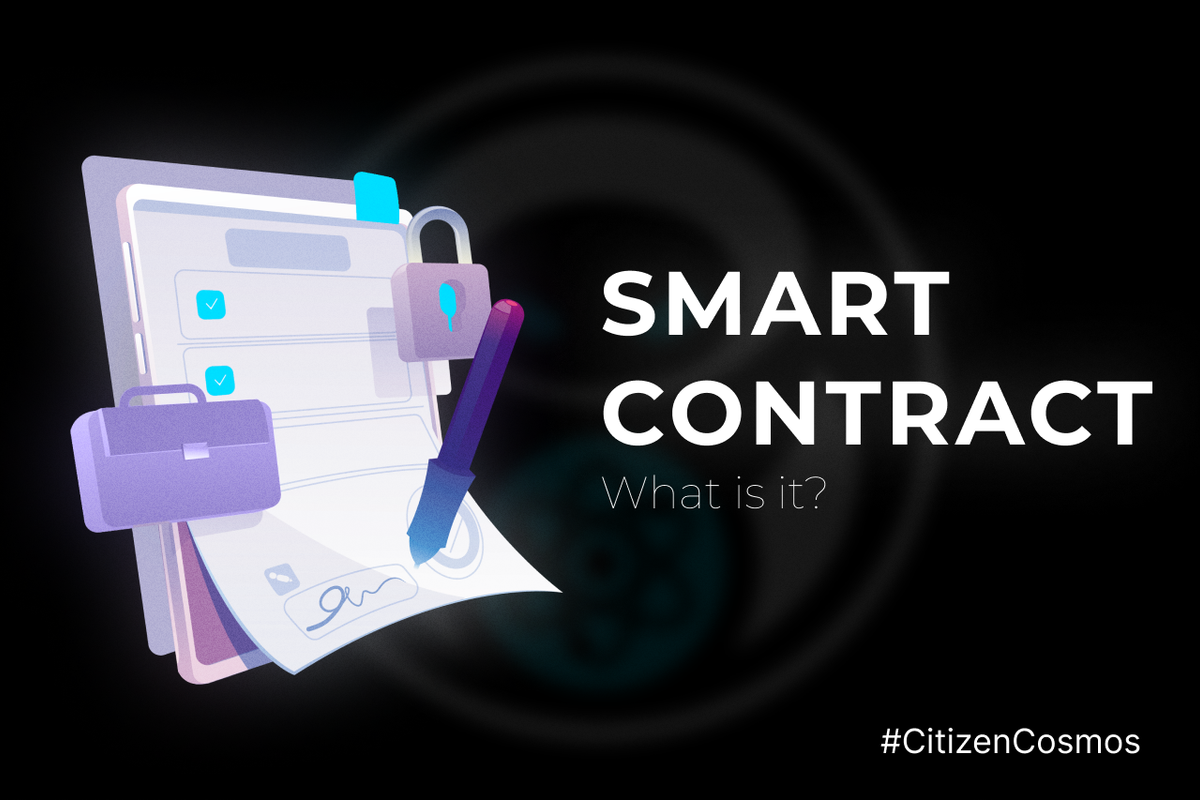What is a smart contract?
What is a smart contract?
What is a smart contract? Let's first see how a regular contract works. Two parties, A and B, want to conclude a contract. They need the services of a third party they can trust to keep up with the contract. Smart contracts eliminate dependency and enable the automatic execution of contracts. A smart contract is nothing more than a programmable behavior of the chain or even simpler, its a programmable behavior.
If we compare ordinary and smart contracts, smart contracts have apparent advantages.
Regular contracts require:
• A third party you can trust. Usually, lawyers, notaries, and the government enforces the contract.
• Time. Manually executing a contract can take a lot of time.
• Money transaction In conventional contracts, the transfer of funds is carried out manually, which adds more time to the final execution of the contract.
• Transparency Ordinary contracts cannot provide 100% transparency, because their clarity largely depends on the contract's third parties, intermediaries, and institutions involved.
• Storage The storage of contracts is usually a large and complex problem since most transactions are recorded on paper, and all records are stored in physical form.
• Expenses Traditional contracts require more expenses to pay for the services of intermediaries.
When using a smart contract:
• There is no third party to trust. A smart contract is executed automatically and does not require the involvement of intermediaries.
• Time A smart contract is executed quickly, in minutes, when the specified conditions occur.
• Money transaction In smart contracts, all conditions are predetermined and set in advance. As soon as the condition is met, the transfer of funds is carried out automatically.
• Transparency 100% transparency around the clock. Any party can view the terms and transactions of the smart contract.
• Storage Smart contracts do not require paper storage and allow you to instantly track the entire history of the fulfillment of the terms of the contract and transactions.
• Expenses Smart contracts offer low commissions because they do not require intermediaries to execute them. Only the commission of the leading blockchain network in which the smart contract is implemented is charged.
What is a smart contract?
Let's take an example from real life. You want to buy chocolate from a vending machine. You put a bill into the machine, press the button with the number of the chocolate you want to buy, and the machine gives you that particular chocolate. A smart contract is very similar to a vending machine. It eliminates the need for intermediaries and replaces the vendor. A smart contract is a self-executing contract that contains all the terms and conditions between the parties and participants of the agreement. The terms and conditions of the agreement are written in code that runs on a decentralized blockchain platform. Such agreements govern digital assets, shares, property, currencies, etc.
Let's take another example.
Rachel arrived at the airport, but her flight was delayed. However, this inconvenience can benefit Rachel, as according to the smart contract with the insurance company, she will instantly receive compensation for the delayed flight. Imagine that there is already a smart running contract with an insurance company. This contract tracks delayed flights, and as soon as the delay is more than 2 hours, all insured persons, including our Rachel, automatically receive compensation in their account. Let's see how it works. An insurance company issues its clients a smart contract on the Ethereum blockchain. This smart contract is connected to airport databases and keeps track of flight delays. If any flight is delayed by more than X hours, automatic compensation occurs, and Rachel gets the money into her account.
What are the bottom-line benefits of smart contracts?
• No intermediaries The advantages of smart contracts include the absence of the need for intermediaries and a third party.
• Automation The smart contract is executed automatically. All terms of the contract are written in the code. So you don't need to do anything manually.
• High speed The absence of intermediaries and the high speed of calculations make it possible to execute a smart contract quickly.
• Safety The contract data is stored in a decentralized system and cannot be changed.
• Accuracy Depending on the terms and conditions of the contract, the requirements for its implementation are prescribed with high accuracy. All transactions are recorded in the blockchain ledger and become immutable. No one can edit or make changes to these entries.
In what areas do you think using smart contracts will be helpful?
If you would like to support our mission in creating educational content and aligning the goals of different communities, please stake with us here:
Join our community, to build a future where communication is decentralized. May the code be with you!
